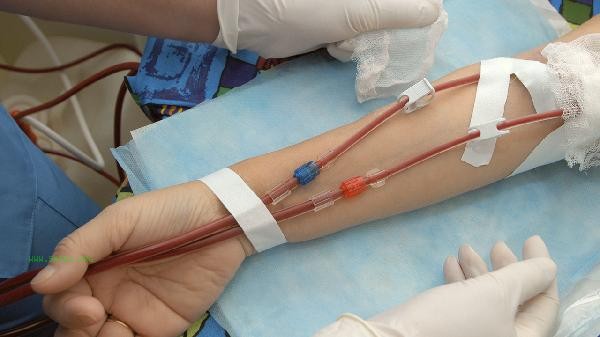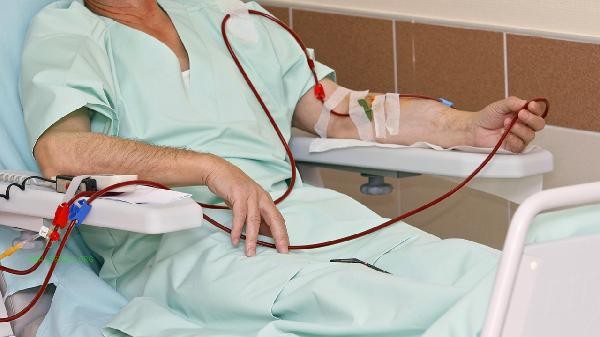Dialysis can effectively replace kidney function in clearing metabolic waste from the body, but it may cause complications such as hypotension and infection. The benefits of dialysis mainly include maintaining electrolyte balance and alleviating symptoms of uremia, while potential risks involve increased cardiovascular burden and nutrient loss.

1. Clearing toxins:
Dialysis filters metabolic waste such as creatinine and urea nitrogen in the blood through the semi permeable membrane principle, which can alleviate symptoms such as nausea and skin itching caused by uremia. Hemodialysis can clear about 120-150 milliliters of toxins per hour, while peritoneal dialysis achieves detoxification through continuous exchange of peritoneal dialysis fluid.
2. Regulating electrolytes:
Potassium, calcium, bicarbonate and other components in dialysate can correct hyperkalemia and metabolic acidosis in patients with renal failure. Research has shown that regular dialysis can stabilize blood potassium concentration within the safe range of 3.5-5.0 mmol/L and reduce the risk of arrhythmia.
3. Water Control:

Ultrafiltration technology can accurately remove excess water from the body, with a maximum dehydration rate of 5% of body weight per dialysis session. However, excessive dehydration may cause headaches and muscle spasms, and the amount of dehydration should be adjusted according to the dry weight. 4. Cardiovascular burden: Hemodynamic changes during dialysis may induce hypotension or heart failure, with approximately 20% of patients experiencing dialysis related hypotension. Long term dialysis can accelerate vascular calcification and increase the risk of myocardial infarction.
5. Nutrient loss:
Each dialysis session results in the loss of 6-8 grams of amino acids, as well as water-soluble vitamins and trace elements. Patients are prone to hypoalbuminemia and anemia, and require additional supplementation of recombinant human erythropoietin and iron.
Dialysis patients should strictly control their daily water intake to within 500 milliliters plus urine, and prioritize the use of high biological value proteins such as eggs and fish. Aerobic exercise three times a week can improve cardiovascular function, but it is necessary to avoid vigorous activity on the day of dialysis. Regularly monitor blood phosphorus and parathyroid hormone levels, and use phosphate binders if necessary. Patients who establish arteriovenous fistulas need to undergo daily vibration tests, and peritoneal dialysis patients should strictly follow aseptic procedures to prevent peritonitis. It is recommended to evaluate the adequacy of dialysis every 3 months and adjust the treatment plan in a timely manner.









Comments (0)
Leave a Comment
No comments yet
Be the first to share your thoughts!